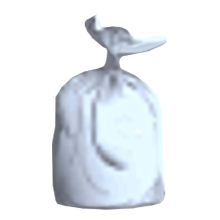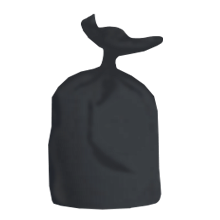As the weather becomes colder and we head into the winter months, Public Health is providing islanders with information to help them stay well this winter.
The winter months generally see more people become unwell through a variety of factors. These include the cold weather affecting people already vulnerable and islanders spending more time indoors with germs spreading more easily as a result. Public Health has put together a variety of advice and links to other useful resources.
Protect yourself this winter against COVID-19 and flu
- We're encouraging all eligible people to boost their protection against COVID-19 and flu this winter. Having flu and COVID-19 at the same time can mean a higher risk of becoming seriously unwell, so getting vaccinated is the best way to protect yourself.
- Over the past two winters, COVID-19 measures have also helped prevent flu from circulating as widely. Every year, the flu season is different. Different flu strains mean we need slightly different vaccines, so it's important that all those eligible get vaccinated and boosted to increase their immunity levels.
- For more information about the current autumn booster programme, visit https://covid19.gov.gg/guidance/vaccine
How to stay warm at home this winter
- With winter on the horizon, we're encouraging people to try and keep well by staying warm. While we all know extremely low temperatures can cause harm, even temperatures that appear to be mild (4°C to 8°C) can have negative effects on your health.
- We know that heating is expensive for many people but the following steps could help avoid illnesses associated with the cold and help you keep warm.
- Heat your home, or the parts of it you're using if not able to heat the whole property, to above 18°C. This is particularly important if you have reduced mobility, are 65 or over, or have a health condition, such as heart or lung disease.
- Draw your curtains and close doors to block out draughts and keep heat in
- Fit draught proofing to seal any gaps around windows and doors.
- Set your heating to come on before you get up in the morning
- Stay warm by wearing multiple thin layers
- Make sure that you eat and drink well - here are some eat well links - Eat Well @ home | Health Improvement Commission
- Keep moving, as this keeps the blood flowing around the body - Be Active @ Home | Health Improvement Commission
- If possible, plan ahead and keep in touch with the weather forecasts and cold weather alerts
- Carbon monoxide risk
- When burning fuel, carbon monoxide poisoning can be a health risk. Carbon monoxide is produced when fuel does not burn properly. This is difficult to detect because you can't see, smell, or taste it.
- To minimise risks, a carbon monoxide (CO) alarm should be fitted in any room that contains a gas fuel burning appliance, like a boiler and gas fire, and a solid fuel burning appliance, and tested regularly to ensure that it is working, as effectively as possible.
- If you're a low-income household but don't qualify for income support, it is possible in some cases to still get help with medical costs or help with fuel costs over winter (or in some cases both). To find out if we can help you, please call 01481 221000 or email: incomesupport@gov.gg
Stay at home if you are unwell
- As it starts to get colder, we would like to remind people of the importance of staying at home if you feel unwell. It is important to prevent the spread of infections such as COVID-19 and flu and staying at home will help this.
- Please do an LFT if symptomatic. If it's positive, adults should stay at home and avoid contact with others for 5 days. They can go out on Day 6 if asymptomatic and they should wear a face covering in enclosed or poorly ventilated spaces until Day 10. Children and under-18s can go out after 3 days if they have no symptoms - see here for more details https://covid19.gov.gg/positive_case
- If your LFT is negative, but you still feel unwell, it is still important to stay at home to reduce the spread of any other respiratory or the flu virus. You should also repeat the LFT after 24 hours.
- Try to work from home if you can - if you're unable to work from home, ask your employer about options available to you.
- More information can be found here https://covid19.gov.gg/guidance/lateralflow
Keeping healthy this winter
- As we get older, cold weather and winter bugs affect us more than they used to. The good news is there's lots you can do to keep well over winter.
- Eat well - it's better to eat a bit of what you fancy than to eat nothing. Try to eat lots of fruit and veg and food high in fibre. Keep the basics stocked up too in case you can't head out to the shops
- Winter vaccinations - get your COVID-19 booster and flu vaccine if eligible
- Keep moving - try not to sit still for more than an hour at a time
- A warm home - we know heating can be expensive for some people but try to keep your home warm wherever possible
- Stop the spread of germs - regularly wash your hands and remember 'catch it, bin it, kill it' for coughs and sneezes
- Wrap up and stock up - wear plenty of layers and keep cold and sore throat remedies in the house
Look out for each other
- Sometimes we might find ourselves feeling worried, restless, Lonely or frustrated. Some of us might feel totally overwhelmed. It is very important that we stay aware of how we are feeling and look out for each other.
- If you are struggling, there are a number of services and organisations available to help and support you. You can find details of some of these here: Mental health support - States of Guernsey (gov.gg)
- You can also stay in touch with relatives and friends on the phone or by social media, reconnect with a hobby or earn a new skill through an online course.
- Go for a walk outside in the fresh air or try a home workout.
- Think about how you can adapt your daily routine and set new goals
- Borrow an e-book from the Guilles-Alles library's online selection or take advantage of their home delivery service.
- Learn how to meditate.
- Listen to a new podcast such as "Feel better, live more" with Dr Rangan Chatterjee, "Happy Place" with Fearne Cotton, Bryony Gordon's "Mad World" or perhaps the TED Radio Hour Podcast
- Experiment in the kitchen with some new recipes.
- Challenge yourself with a puzzle
- Pick up an instrument or new craft to help focus your mind and pass the time
- Try a free online course from Future Learn
- Look in on vulnerable friends and relatives, if you can
Don't suffer in silence this winter
- The winter months, and Christmas and New Year in particular, can be difficult for many islanders. If you need extra support, there are people to help you
- If you need help quickly:
- Talk to a trusted friend or family member
- See your GP to discuss extra help
- Contact the Samaritans free on 116123
- If you have suicidal thoughts and feel you are at risk of acting on those thoughts, attend the Emergency Department at the Hospital, where you will be assessed by a Mental Health Professional.
- If you have been struggling for a while:
- If you are experiencing particularly low mood or high levels of anxiety or stress for a sustained time, contact your GP to discuss how they can help.
- You can also self-refer to Healthy Minds . Healthy Minds is a free States of Guernsey service that offers short-term therapeutic interventions for adults aged 17 and over, who have mild to moderate anxiety and depression.
- This service is provided by a team of qualified therapists. For more information on Healthy Minds, and for the link to their online self-referral form, please see www.gov.gg/healthyminds.
- If you are concerned about a child under the age of 18:
- Contact your GP who can discuss a referral to the Child and Adolescent Mental Health Service (CAMHS). CAMHS is a free States of Guernsey Service that assesses and treats young people with emotional, behavioural or mental health difficulties. Please see www.gov.gg/CAMHS
- There are also many organisations in the Bailiwick who can help. Full details can be found here: Mental health support - States of Guernsey (gov.gg)
Look after your mental health this Christmas
- Guernsey Mind have put together some useful tips on keeping mentally healthy this Christmas. The video can be viewed on their website here: https://www.guernseymind.org.gg/
- Take a look at these 12 tips to look after your mental health this Christmas time - adapted from Northern Healthcare 2022)
- 1. Maintain a routine -Try your best to stick to a regular routine
- 2. Make a list, check it twice - Create your own Christmas agenda to make sure that you balance your social commitments and self-care. Make time to do something you enjoy like watching a film or reading a book and set short-term realistic expectations.
- 3. Help the community - Particularly if you feel lonely at Christmas. Get involved by volunteering in local community organisations over Christmas.
- 4. Selfcare - Having a time-out helps to prevent stress and maintain performance throughout the day. It is essential for us to take a break whether it be from work, family, friends or Christmas to make sure we don't start to feel overwhelmed. Self-compassion is good for your mental health. Do something you love.
- 5. Create a Christmas playlist - Listening to music can reduce depression and stress, boost our mood, help us to sleep better, as well as improve our motivation and memory. If you don't like Christmas music, make a playlist of your choice!
- 6. Make time for sleep - Sleep is an essential component to not only positive mental health but also our physical health. Make sure it is still a top priority.
- 7. Avoid unhealthy comparisons and expectations - It is easy to get carried away with what everyone else is doing (or buying!). Avoid unhealthy comparisons. Minimise social media/screen time.
- 8. Pull out your chef hat and apron - Cooking is a good way to boost our creativity and leaves us with a sense of accomplishment.
- 9. Connect with others - Meet up, video call, or message. Staying in touch with others boosts our mood. If you do not have family or friends nearby and you need someone to talk to at any time, you can call Samaritans for free on 116 123.
- 10. Stay active - A winter walk is a great way to boost your mood as well as getting in some daily exercise. Here are some simple local walking routes #GetOutThere | Health Improvement Commission
- 11. Make decorations - Arts and crafts can help reduce anxiety and depression and has a positive impact on our mental health.
- 12. Have mindful moments - Paying attention to the present can improve our mental wellbeing. Mindfulness helps us reconnect with ourselves and connects us to our thoughts and feelings. . Meditation and mindfulness apps can be downloaded try these Headspace.:Meditation and Sleep Made Simple - Headspace or CALM : www.CALM.com which both have free trial sessions
Useful links
- These links go to external sites with useful advice and guidance:





















